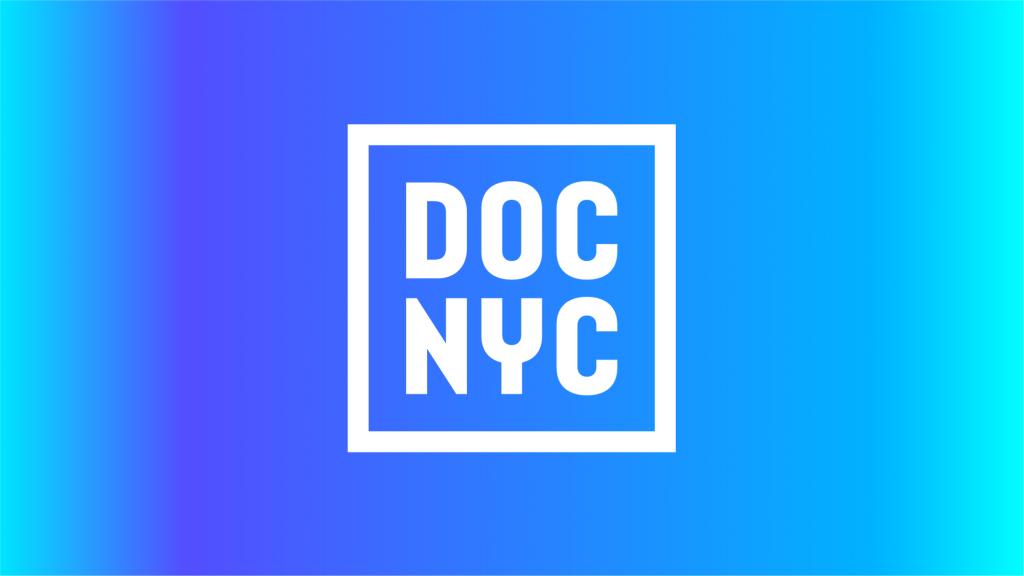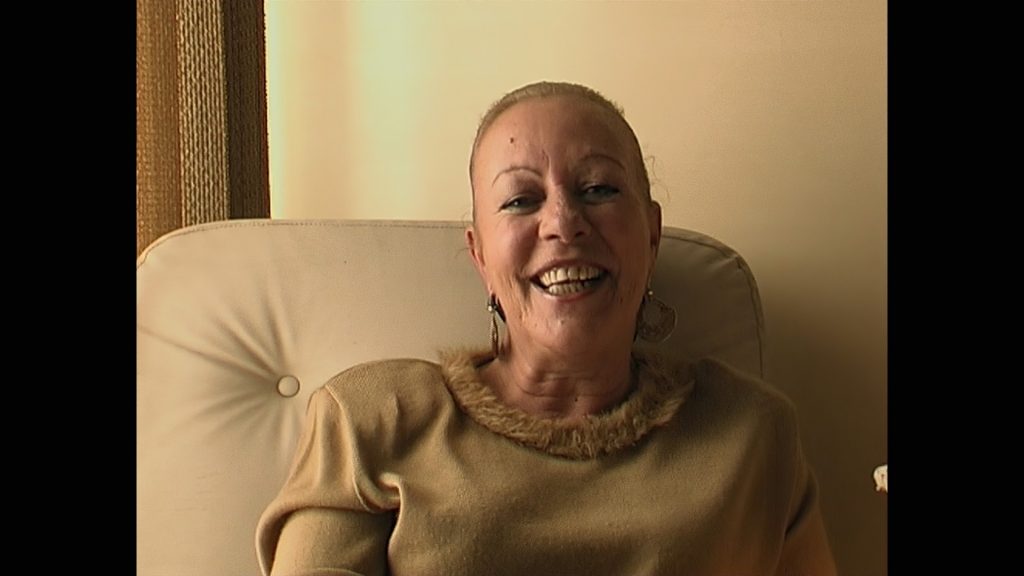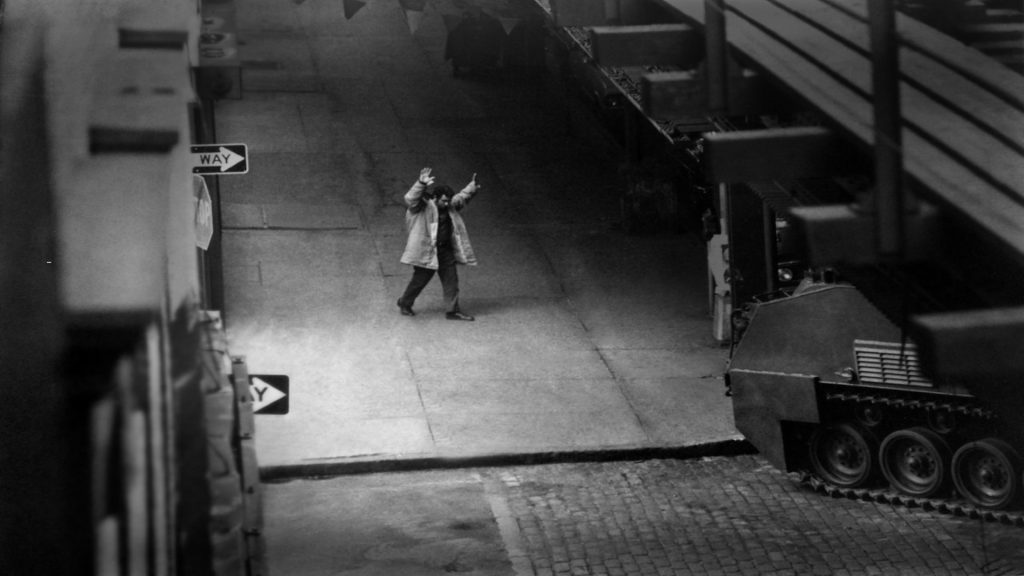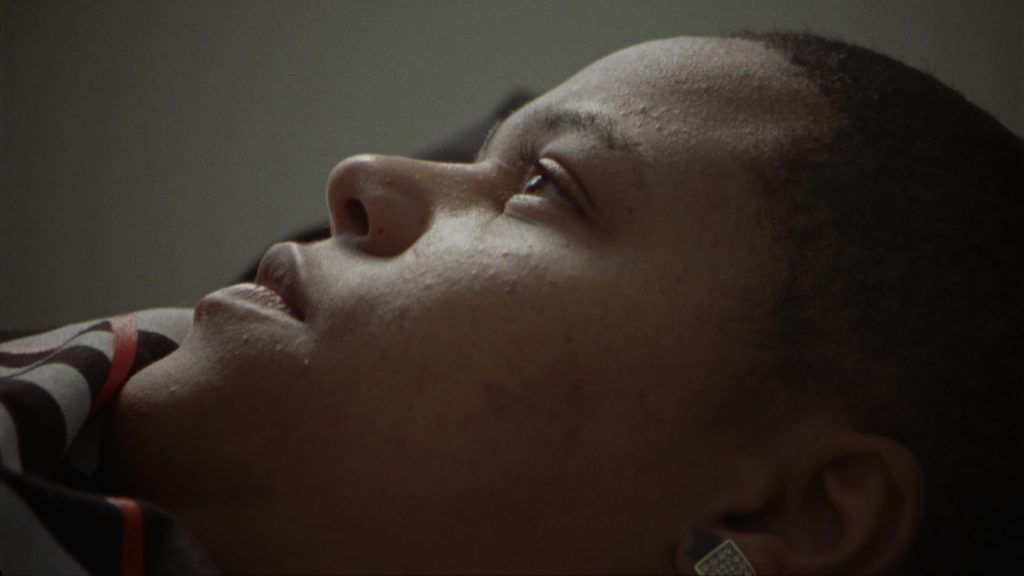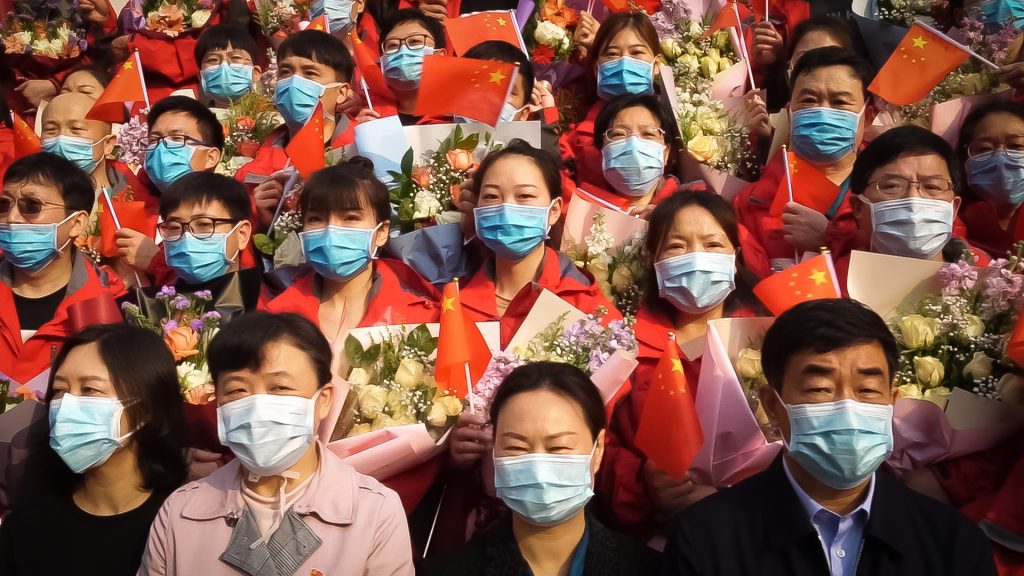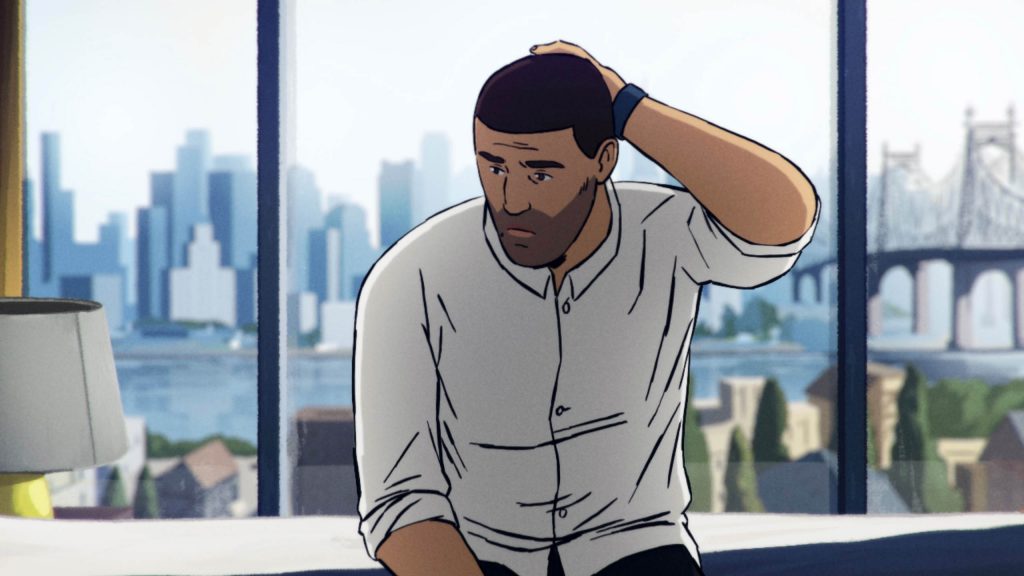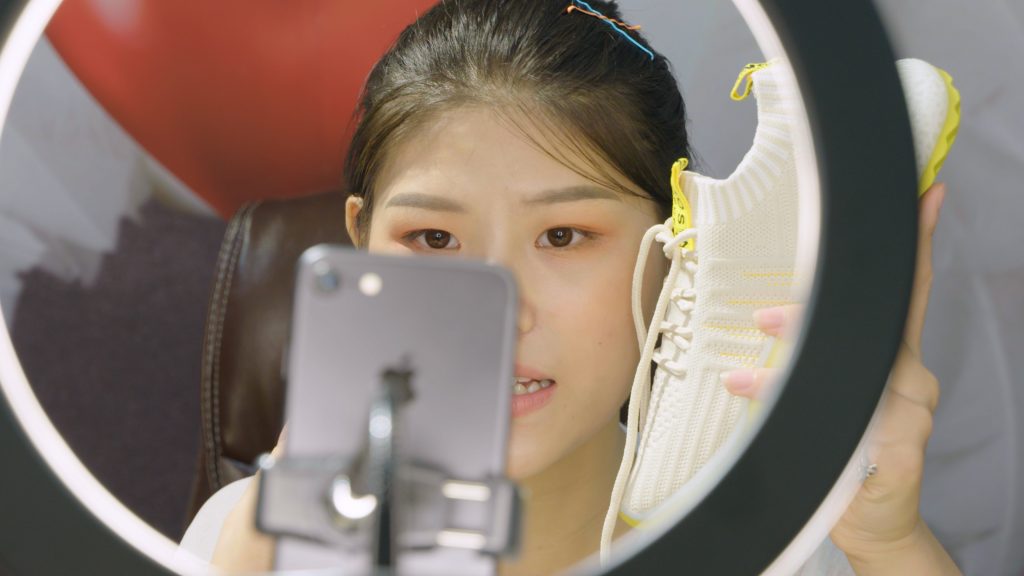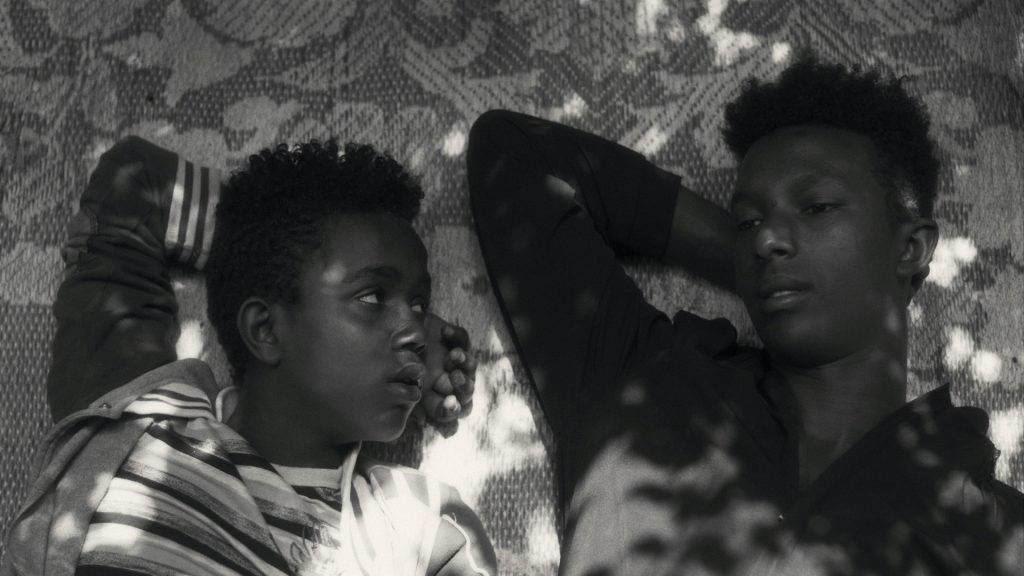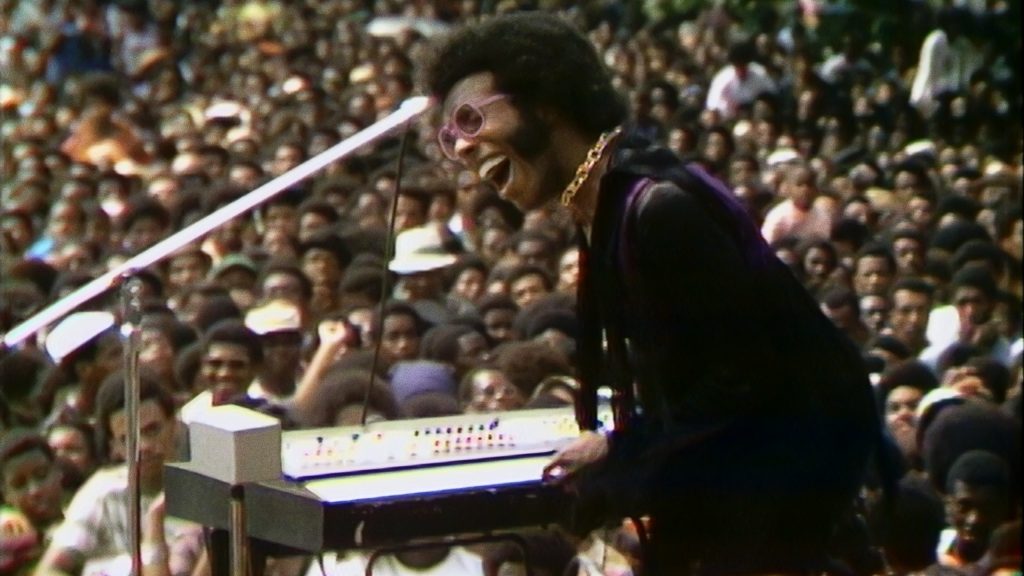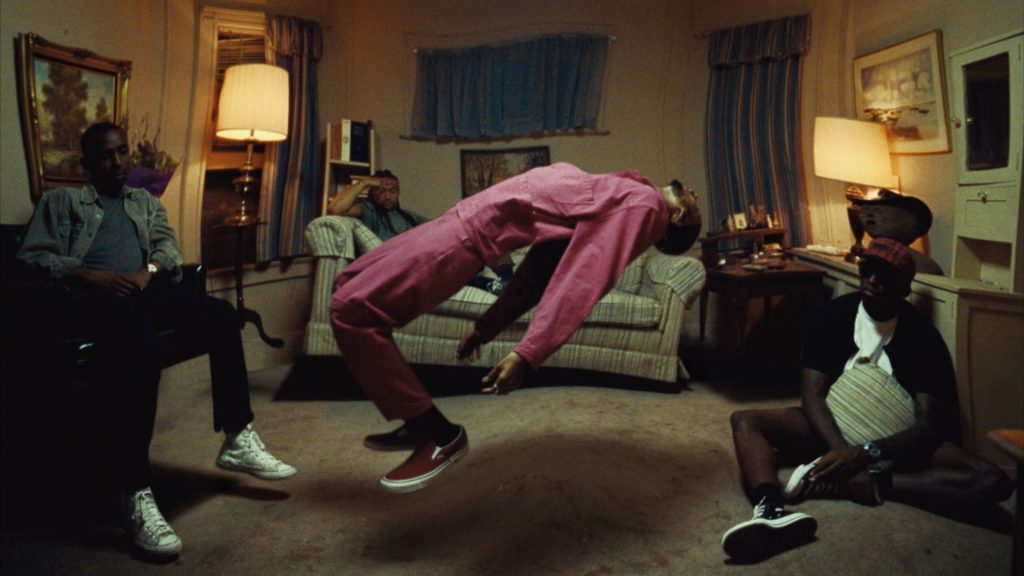July 4, 2022
by Carla Hay
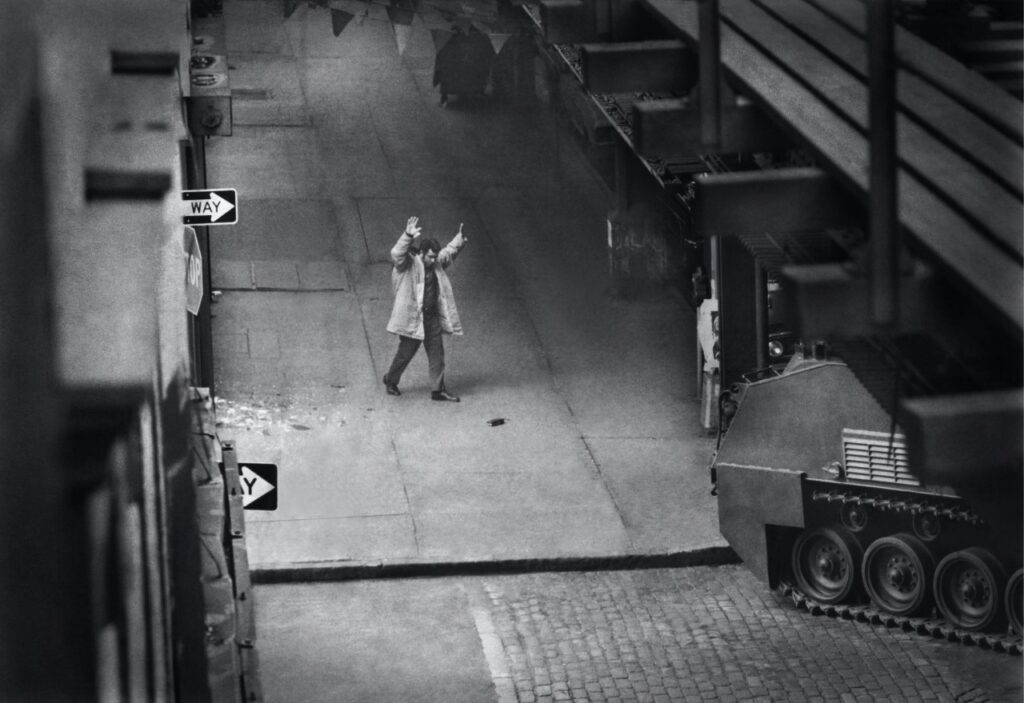
Directed by Stefan Forbes
Culture Representation: The documentary film “Hold Your Fire” features a group of African American and white people from the working-class and middle-class who were in some way connected to a kidnapping/hostage standoff that lasted from January 19 to January 21, 1973, in New York’s City’s Brooklyn borough.
Culture Clash: There was racial tension in this crisis because the hostage takers were four young African American men, almost all of the police officers were white, and there was disagreement among law enforcement on how to handle this crisis.
Culture Audience: “Hold Your Fire” will appeal primarily to people who are interested in watching true crime documentaries that go deep in discussing racial issues and hostage negotiations tactics.
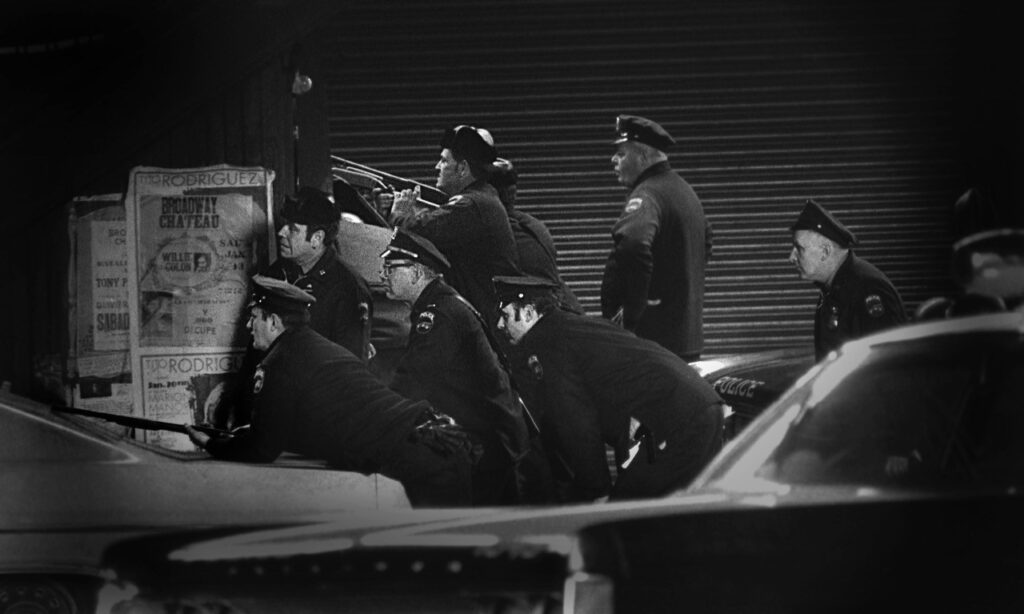
The compelling documentary “Hold Your Fire” has lessons that go beyond this chronicle of a notorious hostage crisis that happened in New York City in 1973. The movie shows how dangerous situations can be de-escalated with the correct communication. Directed by Stefan Forbes, “Hold Your Fire” takes the view that how this hostage crisis was handled was a turning point in getting the New York Police Department (NYPD) to rethink the “shoot first, ask questions later” automatic reaction to hostage takers. “Hold Your Fire” had its world premiere at the 2021 Toronto International Film Festival and made the rounds at some other film festivals, including the 2021 edition of DOC NYC.
Almost everyone who’s interviewed in “Hold Your Fire” was directly affected in some way to this hostage-taking incident, which lasted from January 19 to January 21, 1973, in New York’s City’s Brooklyn borough. It all started when four African American men—ranging in ages from 22 to 26—went into a store called John and Al’s Sporting Goods, with the intention of robbing the store of firearms and ammunition. John and Al’s Sporting Goods was located in Brooklyn’s Bushwick neighborhood, which in 1973 had a reputation for being a crime-ridden, low-income area. (Bushwick is still mostly working-class, but it has since been gentrified and “cleaned up” its “on the decline” image that it had in the 1970s.)
The four men who invaded the store were Sunni Muslims, who wanted the firearms and ammunition for what was later described as a “holy crusade” and for self-defense against recent attacks from Black Muslims. The robbers were Shulab Abdur Raheem (now known as Shu’aib Rahim), who was 24 years old at the time; Yusef Abdallah Almussadig (now known as Mussidiq), who was 23; Dawud A. Rahman, who was 22; and Salih Ali Abdullah, who was 26. Although all four men have been identified as being members of the Black Liberation Army (BLA) when this crime happened, in “Hold Your Fire,” Rahim (who was the leader of the robbers) claims he was not a BLA member when this crime occurred.
Contrary to what perceptions might have been, these four men were not career criminals at the time of this robbery and hostage-taking crisis. Rahim was a transit toll-booth worker. Mussidiq was a carpenter. Rahman was a college student. Abdullah was a TV repairman. Rahim and Rahman are the only two of the four robbers interviewed in “Hold Your Fire.” The movie’s epilogue explains what happened to Mussidiq, Abdullah and a few other principal people involved in the hostage crisis.
During the robbery, things quickly spiraled out of control. The police were called to the crime scene; there were shootouts between the police and robbers; and the robbers initially refused to surrender. Instead, the robbers stayed in the store, where they took 11 people as hostages during the standoff. In “Hold Your Fire,” Rahman says he wanted to surrender immediately, but he was outvoted by his other three cohorts, who at first wanted to flee the scene, but then decided to take people hostage inside the store when they found out that many cops were surrounding the store.
Not everyone made it out of this crisis alive. NYPD officer Stephen R. Gilroy was killed during the shootouts. The NYPD, much of the media and the state of New York blamed the robbers for the death. All four men were convicted in New York Supreme Court of murdering Gilroy, kidnapping and armed robbery. But to this day, the bullet that killed Gilroy was never matched to any guns. Some people in the documentary speculate that Gilroy was killed by an accidental gunshot from someone in the NYPD and that the NYPD covered up the evidence.
Much of “Hold Your Fire” includes vivid memories of what happened inside the store and outside the store, from the people who were there during this hostage crisis. The people who were inside the store who are interviewed in “Hold Your Fire” include hostage takers Rahim and Rahman; hostage Rosemary Catalano, who was 16 years old in 1973; and Jerry Riccio, owner of John and Al’s Sporting Goods, who says the robbers’ first big mistake was trying to steal more firearms than the robbers could carry. The police officers who were outside of the store who are interviewed in “Hold Your Fire” (and who are all now retired) are Al Baker, former NYPD captain; Jack Cambria, former NYPD lieutenant/sergeant; Al Sheppard, former NYPD patrolman; and Brian Tuohy, former NYPD police officer, who was a 27-year-old rookie at the time.
In addition, “Hold Your Fire” has archival interviews with NYPD commissioner Ben Ward and NYPD Commissioner Patrick Murphy. A few academics and legal experts weigh in with their perspectives, such as criminal defense attorney Gerald Lefcourt and Dr. Antoinette “Toni” Collarini-Schlossberg, who is chair of the criminal justice division of St. John’s University in New York City. And there’s an interview with Alice Buckner, the daughter of the late Fonnie Bucker, who was one of the hostage victims. Alice says that as a result of the hostage trauma, Fonnie (who was pregnant at the time) had a nervous breakdown and a miscarriage shortly after she was released.
In interviews to promote “Hold Your Fire” and in the movie’s production notes, “Hold Your Fire” director Forbes says that the biggest hero of this crisis was Harvey Schlossberg, a NYPD officer who had a Ph.D. in psychology and who was the chief negotiator on behalf of the NYPD. Schlossberg is interviewed in “Hold Your Fire,” where he gives a step-by-step account of why he felt that the best tactic was for the NYPD to not storm into the store and shoot the robbers, which would have been standard procedure. Instead, the three-day standoff consisted of tense negotiations, which resulted in many of the hostages being released and no one else being killed before the robbers surrendered.
Schlossberg comments on his philosophy in resolving conflicts: “I believe in talking. Everything is resolvable by talking.” But as the documentary details, this tactic was very controversial in the heat of the moment. Schlossberg got a lot of pushback, complaints and threats from the NYPD, members of the media, loved ones of the hostage victims, and other people in the general public, who all thought that verbal negotiations would take too long to resolve the crisis. Many people thought that the robbers needed to be immediately killed by the police.
This standoff between the cops and the robbers happened just two years after the notorious Attica Correctional Facility crisis in Attica, New York. Attica’s male prisoners (mostly African American and Latino), who demanded more humane living conditions and better health care, took over the prison and held several prison employees hostage from September 9 to September 13, 1971. Negotiations fell apart, and then-New York governor Nelson Rockefeller ordered state and local police (almost all who were white men) to employ war-like tactics to take back control of the prison. In the end, 33 inmates and 10 correctional officers and employees were killed in the violent standoff.
“Hold Your Fire” doesn’t gloss over the racial context of the very divisive debate over how the hostage crisis should have been handled at John and Al’s Sporting Goods on those fateful three days in 1973. Rahim comments in the documentary: “New York City has always had a hard, ugly relationship between the police and the community of color. All my life, the police have been killing black people.”
Baker has this counter-remark: “I know for a fact that cops aren’t racist, yet there was this perception that cops were going to brutalize blacks. Police are seen as oppressors, corrupt, brutal.” Sheppard, who was one of the cops on the scene of this hostage crisis, says that the kidnappers/robbers were looking for a violent fight: “They want a physical confrontation.” As for kidnapping/robbery leader Rahim, Sheppard adds, “A guy like that needs his ass kicked.”
Rahim does not try to excuse his heinous actions that day, but he does say that he never intended for anyone to get killed during this robbery and kidnapping. In the documentary, Rahim also denies reports that he was heard saying about slain NYPD officer Gilroy: “I killed that pig.” In “Hold Your Fire,” Rahim comments on Gilroy’s death: “I don’t know what happened. But it don’t really matter at the end of the day, because none of that would’ve happened if we weren’t there.”
Store owner Riccio refutes the NYPD claim that the cops aimed high when shooting into the store. “The police department won’t admit to a lot of things they did,” Riccio comments. Mussidiq, whom Rahim describes as the “loose cannon” of the four robbers, ended up being shot during the standoff, but he survived his gunshot wounds.
As the leader of the robbers, Rahim gets the most scrutiny and is the only one of the four robbers whose background is talked about in-depth. Rahim describes his mother, Gloria Robinson, as his “mentor” but also as an “alcoholic.” During hostage negotiations, Robinson wanted to talk to her son, but Schlossberg advised against it. Schlossberg says in the documentary that it’s generally not a good idea to involve family members or other loved ones of hostage takers in the negotiation process. “If they had a healthy family, they wouldn’t be in here [taking people hostage],” Schlossberg explains.
Rahim gets the most emotional and remorseful in the documentary when talking about Fonnie Buckner, especially when thinking about how her hostage ordeal resulted in her pregnancy miscarriage. He says that Fonnie Buckner had a chance to be released with some other hostages during the standoff, but she refused. “She didn’t trust the police,” Rahim remembers. “She wanted to stay with us.”
In hindsight, Rahim says in the documentary that he has come to understand over the years that what he and his cohorts did during those three days caused lifelong damage: “People who are hurt, injured and suffer—even oppressed—can become blinded by their own hurt and destroy the lives of so many people who did you no harm. That’s the tragedy of it all: when the victim becomes that which they fear.”
It’s mentioned several times in “Hold Your Fire” that one of the barriers with the NYPD that Schlossberg had to face in this hostage negotiation was he did not fit the image of being a macho cop. Baker comments on Schlossberg: “He didn’t look like a cop. He didn’t act like a cop … He was seen as fruity. Not a back slapper, ‘Let’s go for a beer’ guy.”
Baker continues in describing Schlossberg as “socially incompetent, academic, quirky. He has the Jewish sense of humor. A consummate Jew. He was a genius oddball, psychobabble type of guy.” In an archival interview, then-NYPD commissioner Murphy says Schlossberg “was hated, a bookworm, not a warrior.” Another reason why Schlossberg didn’t have the respect of many NYPD officials: He was mainly a traffic cop, which is a position that’s considered the wimpiest and least-demanding position possible for a police officer.
Whatever negative opinions that many influential members of the NYPD had of Schlossberg at the time, he stayed the course in the negotiations. And many people believe that he helped save the lives of the people who didn’t die in this crisis. Sadly, Schlossberg passed away in 2021. He was 85.
In “Hold Your Fire,” Schlossberg says that law enforcement officers often have this mentality during a hostage crisis: “They all believe that if you give me the right gun with the right bullet, I can put everybody out. But I don’t think it works that easily. That’s a Hollywood thing.” There is no Hollywood fantasy in “Hold Your Fire,” which is a no-frills, raw and impactful documentary that effectively shows how the right negotiations can prevent a bad situation from getting worse.
IFC Films released “Hold Your Fire” in select U.S. cinemas, on digital and VOD on May 20, 2022.

